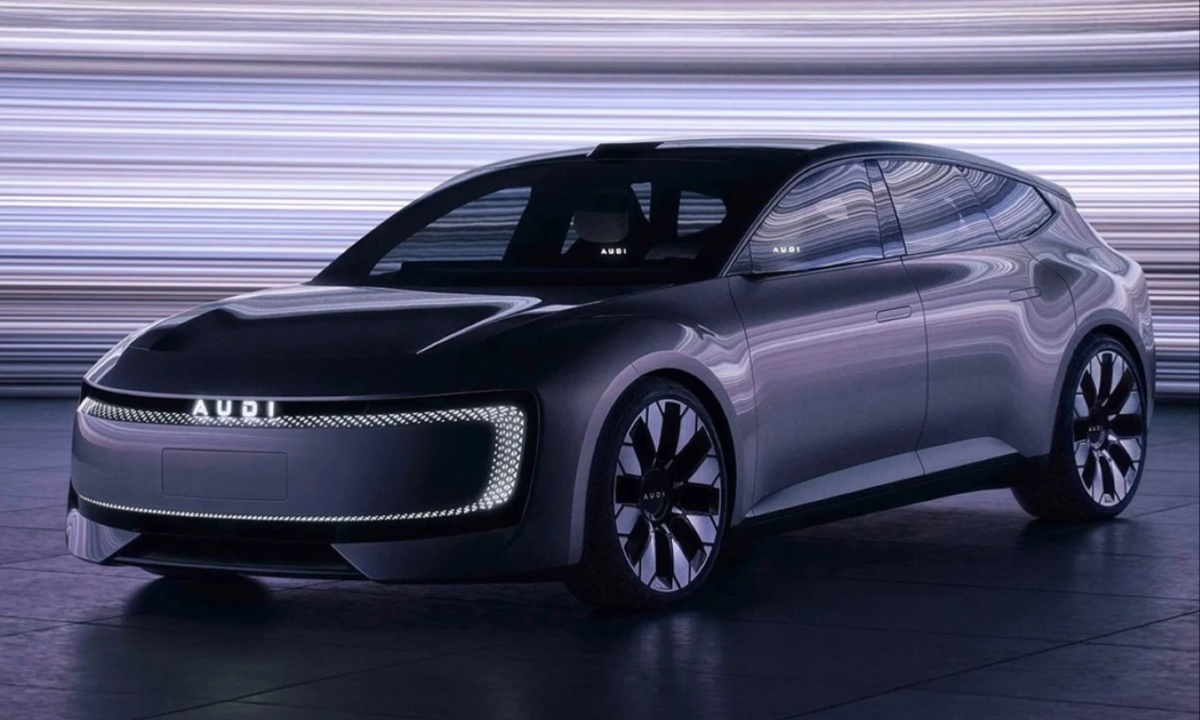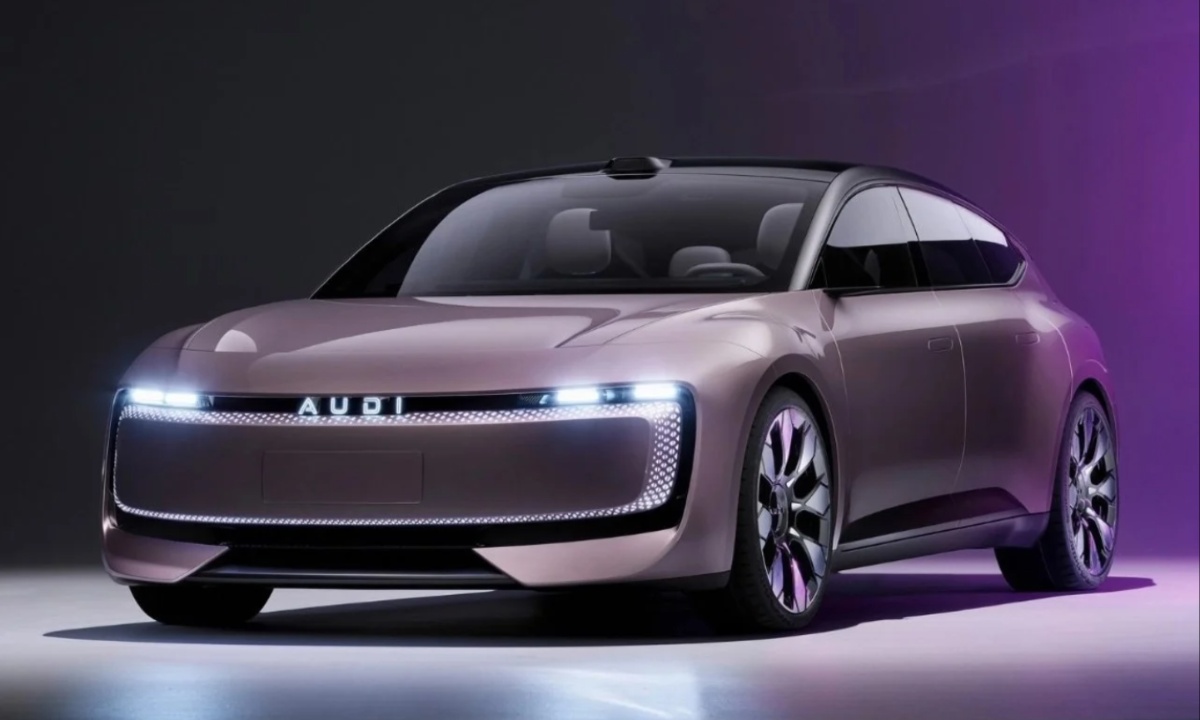Audi has introduced a new logo as part of its effort to capture the attention of younger drivers with a focus on electric vehicles (EVs). In a break from tradition, the company has replaced its classic four-ring emblem with the word “Audi” written across the front of its vehicles. This change comes alongside a strategic partnership with SAIC, a Chinese automotive giant, as Audi aims to introduce a new range of EVs tailored to the Chinese market. This move reflects Audi’s intention to expand its influence in one of the world’s largest car markets, which is increasingly favoring electric vehicles.
The decision to ditch the iconic rings represents a shift in Audi’s branding, as the company adapts to the preferences of a younger, tech-savvy audience. The new models, which will be marketed under a separate sub-brand, will not feature the traditional Audi rings. Instead, they will have the simple “Audi” branding. This strategy is designed to appeal to the growing number of young, environmentally-conscious consumers in China, a market where over 26 million new cars were sold in 2023 alone. Audi’s CEO, Gernot Döllner, expressed enthusiasm for this new direction, noting the company’s role in the electric vehicle revolution and the transformation of the automotive industry.

Despite the change in branding, reactions from the public have been divided. Some people, particularly on platforms like Reddit, have reacted negatively to the new design, joking about its simplicity and comparing it to the logos of Chinese electric vehicle startups. Others pointed out that the new branding might be more appropriate for the Chinese market, where such minimalist logos are common, and questioned whether the move was a wise decision for Audi globally. The shift in logo has sparked a broader conversation about the evolving identity of car manufacturers in a rapidly changing market.
The four rings of Audi have a historical significance that dates back to 1932, when they symbolized the alliance between four German car brands: Audi, Chemnitz, DKW, and Horch. The rings have since become synonymous with Audi’s luxury image and high-performance vehicles. The decision to phase out this well-known symbol marks a significant departure from the brand’s heritage, but Audi believes that the change will help appeal to younger consumers who are drawn to a more modern, streamlined aesthetic.
This move from Audi comes just days after Jaguar also made headlines with its own controversial rebranding. Jaguar has committed to an all-electric future, halting production of many of its traditional models to focus on new electric vehicles. Along with this shift, Jaguar introduced a new logo that received a strong backlash. Both Audi and Jaguar are making bold moves as they transition to electric power, each aiming to redefine their brand identities for a new generation of car buyers. These changes reflect the broader transformation taking place in the automotive industry, as legacy car manufacturers respond to the growing demand for electric vehicles.

